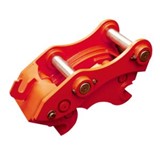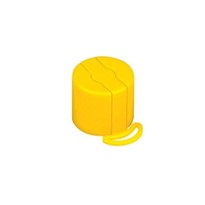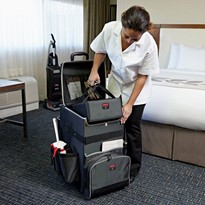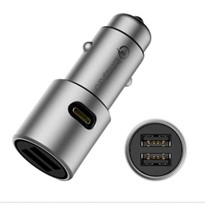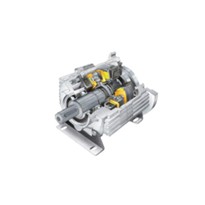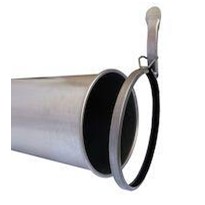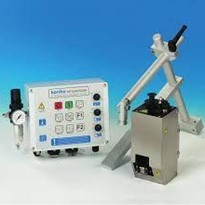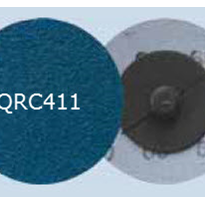To make the most out of having to work on Christmas Day 2017, Kory Abercrombie – a 31-year-old firefighter paramedic for Bainbridge Island Fire Department – dressed as Santa Claus. Having been a volunteer ski medic for the past year at Crystal Mountain – home to 2,600 acres of ski trails and runs in Enumclaw, Washington – he learned an important lesson: namely, that the new guy works the holidays. As Kory grabbed lunch, he heard a call for help come over his radio, indicating that a man was slumped over and unconscious on the chairlift.
A call for help over the radio
The second volunteer medic working that day, 27-year-old Jeff Poland, had just started down a run when the same call came over his radio about an emergency taking place at the Forest Queen lift, from which he had just disembarked. Meanwhile, the operator, alerted to the situation, stopped the chairlift and immediately called for the ski patrol. That’s when Michelle Longstreth – a veteran member of the ski patrol with 24 years of service under her belt – knew something was wrong. “The operator came running toward the patrol Auk House and said there was an unresponsive guy on the chairlift.” So she grabbed the Philips HeartStart automated external defibrillator (AED) off the wall and ran out the door with patrollers Scott Webber and Hannah Besso following right behind her.
With the patient unresponsive and now lying across the chair on the top ramp, the patrollers went to work. He looked gray “Scott felt for a pulse and so did Hannah,” Longstreth says, “but there wasn’t one. I opened the AED. As I looked over, I noted that the patient was looking gray. I started CPR. Hannah placed AED pads on the patient and after a quick analysis, the defibrillator called for a shock. I shocked him and we continued with CPR.” After several more minutes of CPR, the victim showed signs of spontaneous respirations and there was a return of spontaneous circulation. The team slid a backboard underneath the patient so they could transport him and restart the chairlift in order to bring up medic Jeff Poland. Poland arrived on the scene first, followed by Abercrombie who was taken up on a snowmobile with the Philips HeartStart MRx monitor/defibrillator. Poland quickly accessed the situation. “He was breathing, with a pulse, but showing signs of oxygen deprivation to the brain. Using the quick-view window on the AED, I was able to quickly determine he was in a sinus tachycardia,” he said.
Making a tough decision
With the patient in sinus tachycardia (high elevated resting heart rate), Poland and Abercrombie began coordinating with the ski patrol to get him down the mountain to the ski patrol aid room. According to Poland, “Once we were fairly certain that the patient was not going to re-arrest, we decided to get him out of the cramped lift shack and into the ski patrol aid room at the base of the mountain.” The patient was then transported by sled to the base, a decision Abercrombie said was not made lightly. “We elected to ski the patient down the mountain on a sled and perform Advanced Life Support interventions in the stable environment of the ski patrol aid room. This was a risky decision that was either going to pay off dramatically or had the potential to miss quick compressions, defibrillation and airway management if the patient re-arrested.” Once at the bottom of the mountain, Poland and Abercrombie established several IVs, sedated, paralyzed and intubated the patient. Using the MRx, they were able to monitor end-tidal CO2 levels, run a 12-lead EKG and stabilize the patient.
Mother nature was not cooperative
Far from a typical rescue, the elements and terrain were as challenging for medics and ski patrol as was the patient’s deteriorating condition. “We had light snow all day,” Abercrombie said. “This prevented the ambulance from being able to respond and provide a quick transport time. It’s an unnerving feeling when you suspect that the patient is likely to arrest again.” After an hour, the ambulance arrived and transported the patient to Good Samaritan Hospital in Puyallup, Washington. Poland sums up the challenges of the steep mountainous terrain. “You need to strike a balance between making sure that the patient is stable enough to transport to a good location to provide meaningful stabilizing care, without providing so much care that you interfere with your ability to safely get him down the mountain.” No one knows how the weather and landscape can affect a rescue better than Andrew Longstreth. As the Paramedic Program and Advanced Life Support Team Supervisor for Crystal Mountain, he is responsible for administering all the medical programs and training. Although Longstreth wasn’t on the mountain that Christmas day, he is not surprised about the outcome of the rescue.
AEDs are part of our care team
“We have nine Philips AEDs located strategically for ease of access and in highly populated areas of the mountain,” he explains. Adds Poland, “A large portion of our terrain can be time-consuming to access from a single location. By having multiple AEDs located strategically, we can be sure that in the event of an SCA, we can provide timely defibrillation by trained responders. The AEDs are typically located in the ski patrol ‘shacks’ at the top of lifts where they can be a central access point should anything happen.” For Longstreth, these devices are a critical part of the care teams. “The HeartStart MRx monitor/defibrillator and the HeartStart AEDs make a good team. We don’t have to switch pads and the functions are easy to use.” In fact, he says, “Four out of the six times we’ve had to use the AEDs, the patient has survived to the hospital. Three of those patients are still alive today.” Happy New Year, indeed Both the medics and ski patrol team agree that the AED helped save the patient’s life. Six days later, on December 31st, the patient was released from the hospital. Thanks to quick thinking, dedicated first responders and well-placed AEDs, what started as a fight for life on Christmas Day ended with so much to celebrate in the New Year.
“Had there not been an AED so close to where the patient arrested, and had the ski patrol not used their quick thinking in grabbing it, he would not be with us today.”
Jeff Poland, BS, NRP, FP-C, Crystal Mountain Ski Patrol


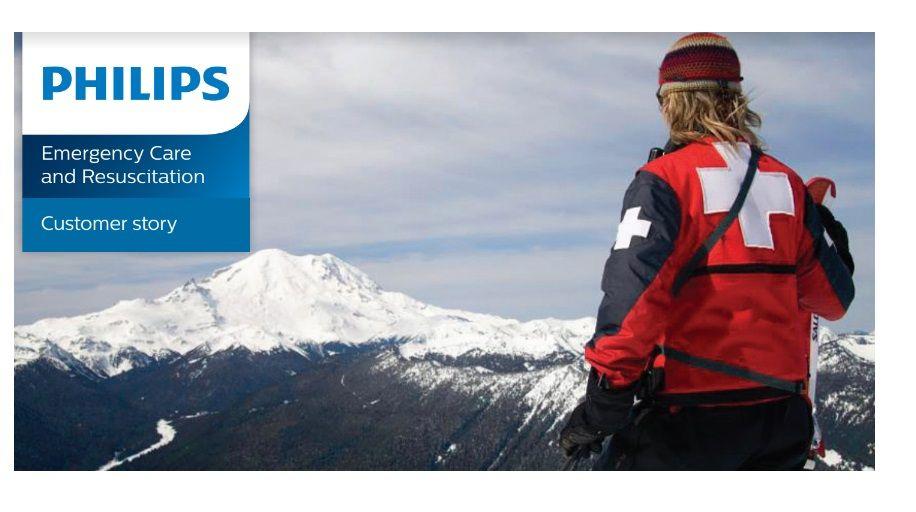
-160x160-state_article-rel-cat.png)

